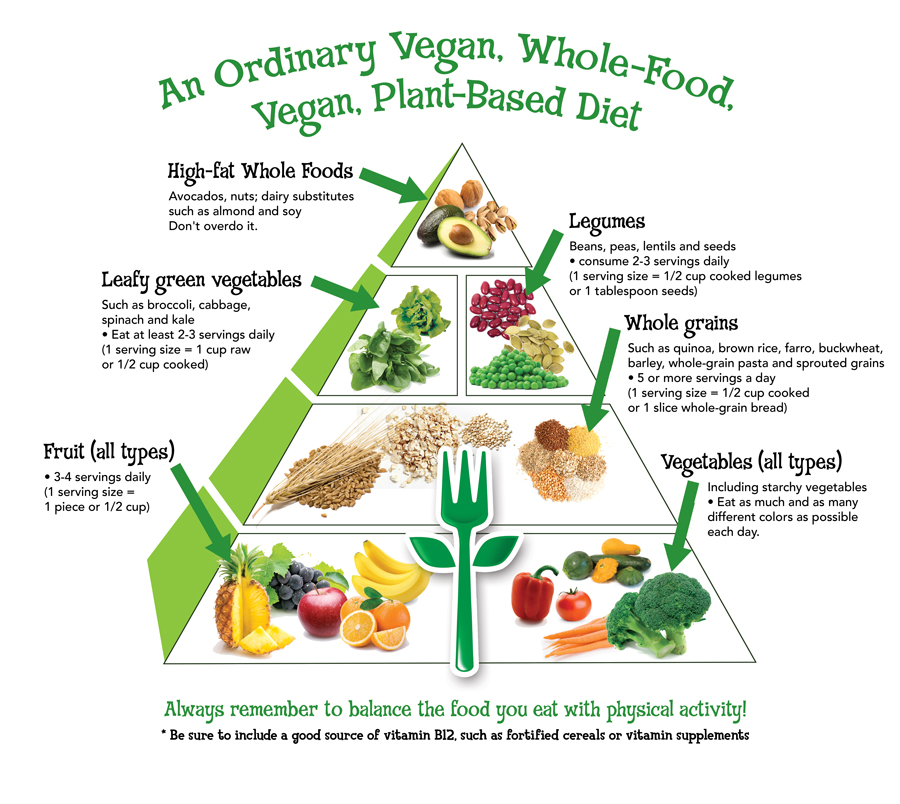All Regarding Healthy Food: Benefits of Embracing Plant Based Options
The discussion bordering plant-based diet plans has actually acquired considerable focus in recent years. Many people are checking out the possible wellness advantages, dietary advantages, and environmental impacts related to these nutritional selections. As individuals become extra familiar with their food's impact on well-being and sustainability, questions arise regarding the usefulness of taking on such a way of living. What specific modifications can one anticipate, and just how might these selections reshape not just personal wellness yet also the planet's future?
Comprehending Plant-Based Diet Plans
Numerous individuals associate plant-based diet plans mostly with vegetarianism or veganism, these diet regimens can include a wide array of eating patterns that focus on whole, minimally processed plant foods. Such diets usually consist of fruits, vegetables, whole grains, seeds, legumes, and nuts, while limiting or getting rid of pet products. This versatility allows people to tailor their dietary options according to dietary requirements and personal choices. Some may take on a primarily plant-based diet regimen while still sometimes consuming meat or dairy products, often referred to as a flexitarian technique. The focus remains on incorporating more plant foods, which can result in a diverse array of flavors and dishes. Understanding these different analyses of plant-based consuming is vital for valuing its ease of access and charm in modern food society.
Wellness Conveniences of Plant-Based Foods
The health and wellness benefits of plant-based foods are substantial, providing a nutrient density benefit that supports overall health. Research indicates that these foods can enhance heart health and play an essential role in efficient weight management. By incorporating extra plant-based options, individuals might boost their dietary choices and advertise long-lasting wellness.
Nutrient Thickness Benefit
Nutrient density plays a crucial function in the health benefits of plant-based foods, making them an engaging choice for those seeking a balanced diet. Plant-based foods, such as fruits, vegetables, legumes, nuts, and whole grains, are frequently rich in important vitamins, minerals, and antioxidants while being reduced in calories. This high nutrient thickness enables people to consume less calories while still meeting their dietary needs. In addition, these foods are loaded with nutritional fiber, promoting digestive health and wellness and aiding in weight management. By integrating nutrient-dense plant-based choices, consumers can boost their overall health and wellness, sustain their immune systems, and minimize the danger of persistent diseases. Eventually, the nutrient density of plant-based foods highlights their importance in a health-conscious way of living.
Heart Wellness Enhancement

Weight Administration Assistance
In addition to promoting heart wellness, a plant-based diet can substantially help in weight management. This dietary method stresses whole foods such as fruits, veggies, vegetables, nuts, and whole grains, which are normally reduced in calories and greater in fiber compared to animal-based products. The high fiber content aids enhance satiation, reducing total calorie consumption. Furthermore, plant-based diets are typically rich in crucial nutrients while low in unhealthy fats, making it less complicated to preserve a healthy weight. Plant Based Chicken. Research study suggests that people who embrace a plant-based way of living often tend to have reduced body mass indexes (BMIs) and experience more successful weight management compared to those who eat meat-heavy diet regimens. As a result, accepting plant-based alternatives is a strategic option for effective weight monitoring
Nutritional Value of Plant-Based Ingredients
Plant-based active ingredients are rich in essential nutrients, using a varied range of vitamins, minerals, and anti-oxidants that add to total health and wellness. A comparison of healthy protein resources reveals that while pet products are usually considered as premium, numerous plant-based choices offer appropriate healthy protein and various other useful compounds. Recognizing the nutritional worth of these components can assist individuals make informed nutritional choices.
Essential Nutrients in Plants
Nutrient-rich ingredients located in plants provide a diverse array of essential vitamins and minerals that contribute greatly to total wellness. These components are abundant in vitamins A, C, and K, which sustain immune feature, vision, and blood clot, specifically. Additionally, plants provide essential minerals such as calcium, potassium, and magnesium, essential for heart health and wellness, muscle mass feature, and bone stamina. The existence of fiber in plant-based foods aids food digestion and promotes a healthy gut microbiome. Antioxidants, discovered abundantly in veggies and fruits, aid fight oxidative tension and reduce swelling. Numerous plant foods are low in calories yet high in nutrients, making them an outstanding option for those looking for to keep a healthy weight while ensuring optimal nutrient consumption.

Contrasting Healthy Protein Resources
Protein sources vary significantly in their dietary profiles, with plant-based active ingredients providing special benefits. Unlike pet proteins, which often have saturated fats and cholesterol, plant proteins have a tendency to be reduced in these harmful elements. Legumes, nuts, seeds, and entire grains are abundant in necessary amino acids, fiber, vitamins, and minerals. For example, lentils provide high healthy protein material alongside considerable iron and folate, while quinoa is a total healthy protein, using all nine important amino acids. Furthermore, plant-based healthy proteins are frequently accompanied by antioxidants and phytochemicals that sustain total health and wellness. The shift to plant-based healthy protein sources not only improves nutritional consumption but likewise aligns with lasting nutritional techniques, minimizing ecological effect and promoting long-lasting wellness advantages.
Environmental Influence of Plant-Based Consuming
As recognition of climate modification expands, several individuals are discovering lasting dietary choices that can significantly minimize their ecological impact. Plant-based eating has emerged as a considerable factor to reducing greenhouse gas emissions, which are largely related to livestock production. The cultivation of fruits, vegetables, grains, and vegetables commonly calls for less resources, such as water and land, compared to pet farming. In addition, plant-based diet plans can result in reduced deforestation, as much less land is needed for grazing livestock or expanding pet feed. By changing in the direction of plant-based alternatives, consumers can sustain biodiversity and advertise healthier communities. In general, welcoming plant-based consuming not only benefits personal wellness but also represents an essential action towards environmental sustainability and preservation efforts.
Conquering Common Misconceptions
While several people recognize the benefits of a plant-based diet plan, a number of mistaken beliefs commonly prevent them from totally accepting this way of life. A typical belief is that plant-based diets lack sufficient healthy protein; nonetheless, numerous plant resources, such as beans, nuts, and tofu, supply adequate protein. In addition, some presume that this diet regimen is pricey, when as a matter of fact, staples like beans, rice, and seasonal veggies can be fairly inexpensive. Another false impression is that plant-based consuming is overly restrictive, whereas it really uses a diverse array of foods and flavors. Ultimately, lots of fret that a plant-based diet might cause shortages, yet with proper preparation, people can obtain all essential nutrients, including minerals and vitamins, while appreciating a wide array of delicious dishes.
Tips for Transitioning to a Plant-Based Way of life
Making the shift to a plant-based way of life can be an enriching experience, though it commonly calls for some guidance to browse the initial adjustments. Individuals are urged to start gradually, incorporating more fruits, veggies, legumes, and entire grains into their meals while reducing meat and dairy consumption. Meal preparation is important; preparing a regular menu can assist reduce the change and stop last-minute unhealthy options. Discovering cooking techniques and brand-new recipes can additionally keep and boost the experience excitement regarding plant-based eating. In addition, signing up with support groups or neighborhoods can provide motivation and share useful suggestions. Ultimately, remaining educated concerning nutrition warranties balanced dishes, avoiding shortages while cultivating a healthy and balanced, enjoyable plant-based lifestyle.
Delicious Plant-Based Dish Ideas
Exploring delicious plant-based dish ideas can inspire people to embrace a more healthy diet regimen. One preferred choice is a hearty quinoa salad, including cherry tomatoes, cucumber, and a vibrant lemon-tahini clothing. Another favorite is a savory lentil stew, packed with Find Out More carrots, celery, and fragrant page natural herbs, ideal for a reassuring supper. For breakfast, over night oats made with almond milk, chia seeds, and covered with fresh berries offer a nourishing beginning to the day. In addition, a dynamic veggie stir-fry with tofu and a selection of colorful veggies can be a quick yet satisfying meal. Finally, velvety avocado salute on whole-grain bread, sprinkled with seeds and seasonings, supplies an easy yet flavorful snack. These meals showcase the variety and richness of plant-based consuming.

Often Asked Inquiries
Can a Plant-Based Diet Supply Enough Protein?
The question of whether a plant-based diet plan can offer adequate protein prevails. Countless sources, consisting of legumes, nuts, seeds, and whole grains, can meet protein requires successfully, supporting a well balanced and nutritious diet regimen for individuals.
Are Plant-Based Diets Ideal for Children?
The viability of plant-based diet plans for children depends on mindful preparation. Adequate nutrients must be assured, including vitamins, healthy proteins, and minerals. With appropriate assistance, such diet regimens can sustain healthy growth and growth in youngsters.
How Do I Dine Out on a Plant-Based Diet regimen?
Eating out on a plant-based diet regimen includes looking for dining establishments with varied food selections, asking for alterations, and exploring vegan-friendly options. Planning ahead and connecting dietary choices can enhance the eating experience while keeping nutritional choices.
What Prevail Allergens in Plant-Based Foods?
Usual irritants in plant-based foods include soy, gluten, nuts, and seeds - BBQ Sauces. People following a plant-based diet should understand these allergens and review tags meticulously to avoid unfavorable reactions and ensure secure consumption
Can Plant-Based Diets Assist With Weight Reduction?
Research indicates that taking on a plant-based diet plan may facilitate weight-loss due to its typically lower calorie density and greater fiber web content. This mix can boost satiation, assisting people handle their calorie intake properly. Numerous individuals connect plant-based diet plans mostly with vegetarianism or veganism, these diet plans can incorporate a broad variety of consuming patterns that focus on entire, minimally processed plant foods. Nutrient thickness plays a necessary role in the wellness advantages of plant-based foods, making them an engaging choice for those looking for a well balanced diet. Plant-based diet plans have been shown to substantially enhance heart health and wellness, as they often include aspects that support cardio feature. In enhancement to promoting heart health, a plant-based diet regimen can considerably aid in weight monitoring. A common belief is that plant-based diet regimens lack enough protein; nevertheless, go to my blog countless plant resources, such as legumes, nuts, and tofu, give enough healthy protein.